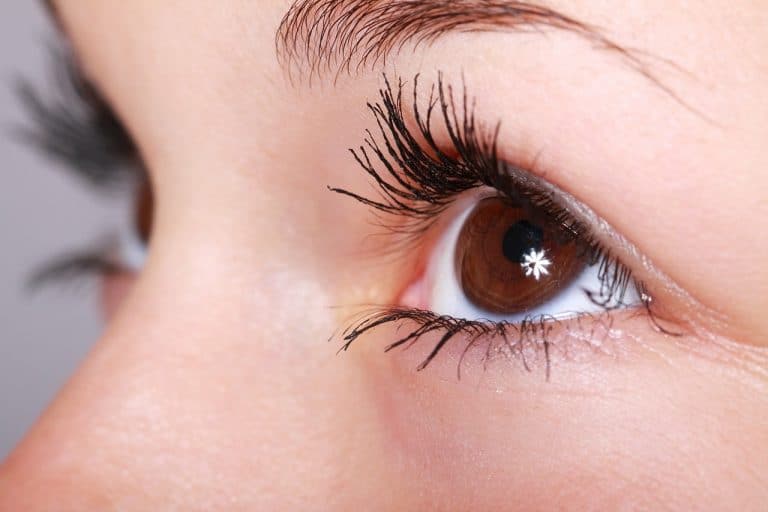Do you get enough sleep? An estimated one in three American adults isn’t getting enough sleep every night.
There are plenty of factors that go into this. Increasingly busy lifestyles, longer workdays, technology stimulation, and more go into an inability to get enough rest.
But did you know that a key part of being healthy can get enough sleep?
There are plenty of ways that sleep impacts both your mental and physical health. When you’re not getting enough, you’ll feel the consequences. Keep reading to learn more.
Cognitive Issues
Everyone who’s ever had a night without enough sleep knows that the next morning is rough. You’re fatigued, foggy, and overall not feeling your best. There are other ways in which a lack of sleep can affect your cognition, though.
Poor sleep may result in memory issues. You may find yourself struggling to find words, focus on important tasks, or even focus on driving. When you try to operate heavy machinery or a car while exhausted, you run the risk of accidents.
The mental issues associated with poor sleep can also result in poor balance. You’ll be less coordinated and at a greater risk for significant falls or tripping.
Mood Disruption
Are you familiar with that cranky feeling when you don’t get enough sleep at night? Exhaustion is a huge cause of mood disturbances.
Our brains need time to recover and decompress. When we don’t get enough sleep, they don’t get that valuable time. This results in mood swings, irritability, and even personality changes.
If you go for a long time without getting adequate sleep, you may start to experience depression and anxiety.
Poor Immunity
Our body uses sleep time to build up immunity. This keeps you safe from illnesses and infections.
When you don’t get enough sleep, your body doesn’t have as much energy, and it has a harder time maintaining your immune system. Have you ever noticed that you feel sick more often when you aren’t getting the recommended amount of sleep? It’s not your imagination.
When you sleep, your body releases cytokines. These cytokines are supposed to increase when you have an infection or any inflammation. They help your body to release antibodies to fight off whatever is causing you harm.
If you’re not sleeping, your body isn’t making those antibodies, and you aren’t protected from illness.
Weight Gain
Did you know that adequate sleep is essential for maintaining a healthy weight? There are a few factors that go into this.
When you’re too tired, you may not be as willing to grab nutritious foods. Our bodies look for the quickest way to get energy, which often results in fatty foods that aren’t nutritionally-dense.
You choose the sugary coffee drink or the bag of cookies for a quick pick-me-up because you don’t have the energy to make a well-balanced meal.
It isn’t just these choices that lead to weight gain, though. When we sleep, our bodies ghrelin and leptin. Ghrelin is the hormone that tells your body when it’s hungry. Leptin tells your body when it’s full.
Getting inadequate sleep results in more ghrelin as your body thinks it needs more energy from outside sources. You keep eating even when you’re not expending enough calories to maintain your weight.
Poor sleep also results in a lowered metabolism, meaning that you burn fewer calories as a result.
As a final problem, when you don’t get enough sleep, you won’t be as motivated to move around, let alone exercise. Keeping a healthy exercise schedule is crucial for maintaining a healthy weight.
If you don’t have the energy to move, you won’t burn off the calories that you’re eating.
Heart Disease
Poor sleeping habits can also result in bad heart health, but how?
When you don’t get enough sleep, you may have higher blood pressure. When you sleep, your blood pressure drops. This keeps your body regulated and ready for the next day (where it will rise again).
Without sleep, your blood pressure stays elevated for longer. High blood pressure is a primary risk factor for heart attacks, heart disease, and stroke.
Furthermore, inadequate sleep may also lead to diabetes. Getting enough sleep helps your body to manage your blood sugar levels. When you don’t sleep, it struggles to do so. Because you may also gain weight without sleep, this puts you at risk for diabetes.
Diabetes is another risk factor for heart disease.
Muscle Recovery
Do you experience sore muscles after a long day on your feet? If you exercise, you know how muscle soreness can impact the entire rest of your day. Luckily, sleep helps our bodies recover, so we’re able to get back to our activities when we wake up.
When you don’t get enough sleep, your body has a harder time battling inflammation. Inflammation around muscles is the result of small muscle tears that happen naturally when you over-use them. While these tears are what helps you build muscle, if your body can’t repair them, you’ll be sore for longer.
How Can I Fix My Sleep Schedule?
If these things sound familiar, it’s time to start thinking about how you can get more sleep.
Many people jump to prescription sleep medications right away, but there are alternatives and natural options to try first.
First, make sure that you turn off electronics an hour before bedtime. The blue light from electronics may be keeping you awake. You should also try to use good sleep hygiene, meaning that you should primarily use your bed for sleep. In other words, don’t play games or do work from bed.
You can also try natural sleep remedies like melatonin. You can find this in pill form or through tasty sleep gummies. Take it an hour or so before bed, and you should feel ready to sleep.
A Good Sleep Schedule Is a Part of Being Healthy
Getting quality sleep matters when it comes to being healthy and prepared for the day ahead of you. Sleep deprivation damages the body and the mind, so don’t fall into that pattern. Instead, try using natural methods for better sleep or talk to your doctor about your concerns.
Get better sleep for a healthier life!
For more helpful posts on health, fitness, and more, check out the rest of our site!










![Home Renovation Guide [2025]](/app/uploads/2021/04/design-hacks-1-378x300.jpg)
